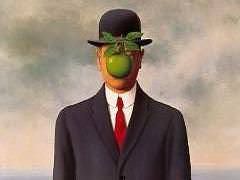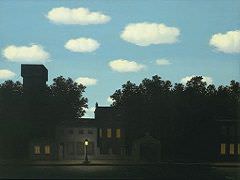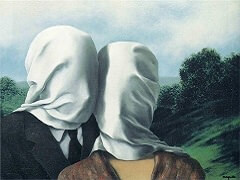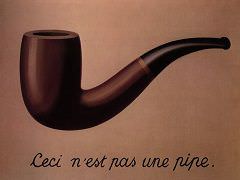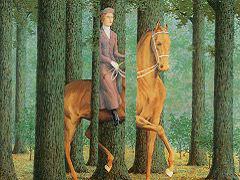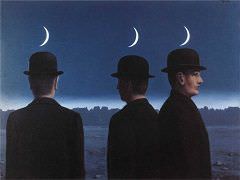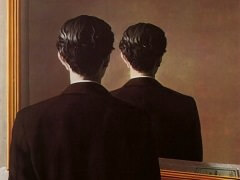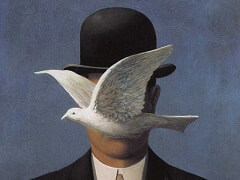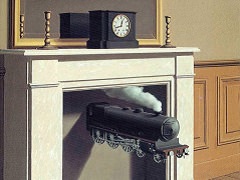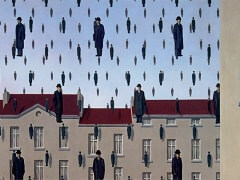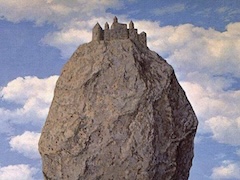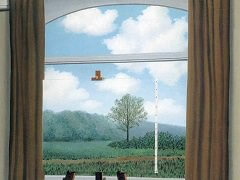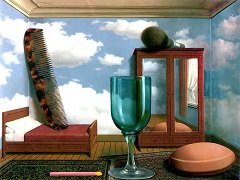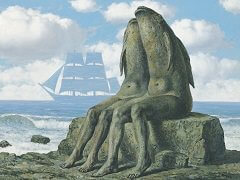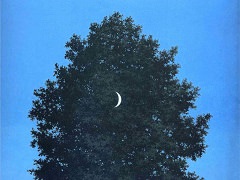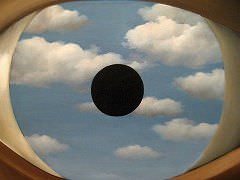The Voice of Space, 1931 by Rene Magritte
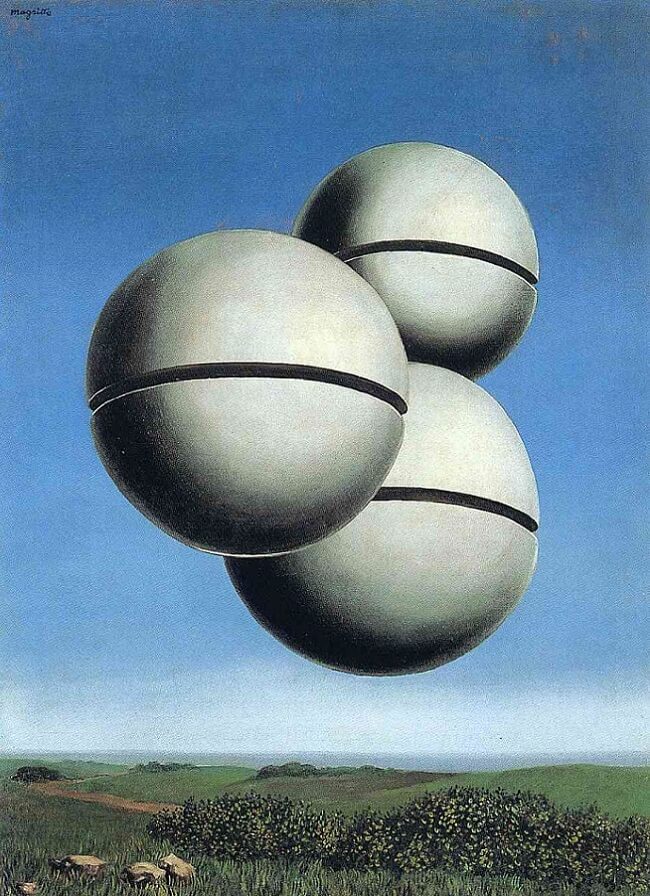
Influenced by Giorgio de Chirico, Rene Magritte sought to strip objects of their usual functions and meanings in order to convey an irrationally compelling image. In Voice of Space (of which three other oil versions exist), the bells float in the air; elsewhere they occupy human bodies or replace blossoms on bushes. By distorting the scale, weight, and use of an ordinary object and inserting it into a variety of unaccustomed contexts, Magritte confers on that object a fetishistic intensity. He has written of the jingle bell, a motif that recurs often in his work:
I caused the iron bells hanging from the necks of our admirable horses to sprout like dangerous plants at the edge of an abyss."
The disturbing impact of the bells presented in an unfamiliar setting is intensified by the cool academic precision with which they and their environment are painted. The dainty slice of landscape could be the backdrop of an early Renaissance painting, while the bells themselves, in their rotund and glowing monumentality, impart a mysterious resonance.

